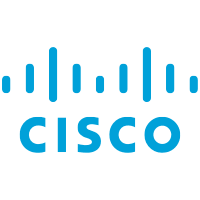Cisco’s John Chambers Bets on Google and Citi-Backed Voice Security Startup

When John Chambers became CEO of Cisco Systems (csco) in the ’90s, he skillfully anticipated the market’s movement away from traditional telephone networks toward IP telephony, or voice sent as data packets over the Internet. Now the executive chairman believes the world is poised for yet another voice revolution—and he’s determined once again to get ahead of the pack.
For companies seeking to go digital, “voice must be the next platform,” Chambers told Fortune on a call. “That’s not intuitive to most people.”
Placing his bet, Chambers said he invested in Pindrop Security, a phone fraud-fighting startup based in Atlanta that counts Alphabet’s (googl) CapitalG, GV, Citi (c) Ventures, and venture capital firm Andreessen Horowitz among its backers. Chambers has also joined the company’s board of directors along with Martin Casado, general partner at Andreessen Horowitz, and Marc Andreessen, the VC firm’s founder, who will serve as board overseer lacking voting rights, the company said Thursday.
Get Data Sheet, Fortune’s technology newsletter.
Chambers declined to reveal the size of the investment, though he said “for me it’s sizable.” He has made eight personal startup investments to date and sits on four of their boards, including the drone software startup Airware. (“I’m fortunate enough to get the pick of the litter,” he said.)
Citing the debut of virtual assistants and voice-activated devices, such as Apple’s (aapl) Siri, Amazon’s (amzn) Alexa, Google’s (goog) Assistant, and Microsoft’s (msft) Cortana, Chambers said he believes voice will be the next major technology interface. He was attracted to Pindrop, he said, because he views it as an “agnostic and neutral” provider of voice authentication that can “rotate between” the aforementioned tech giants’ products.
“Pindrop can be that commonality like Cisco was,” Chambers said.
Vijay Balasubramaniyan, CEO and co-founder of Pindrop, has taken on the enterprise call-center market first. The company has landed “eight of the top 10 U.S. banks alongside two of the top five insurance carriers,” it boasts. In the fall, Lloyds Banking Group became Pindrop’s first European customer.
For more on voice tech, watch:
“As you call banks or insurance providers, the way they treat you is like a criminal,” Balasubramaniyan told Fortune, mentioning annoying authentication questions, like asking for your mother’s maiden name, your date of birth, and your social security number. “Organizations in the U.S. alone spend $ 11.8 billion asking these stupid questions,” he said.
Pindrop’s “phone-printing” technology aims to identify and verify people based on a number of characteristics, including device type, location, and acoustic qualities. The tech can help distinguish between a person in Georgia calling from an AT&T cellphone and a scammer in Nigeria using a Skype phone, for example.
“We’re able to ID any device from anywhere in the world,” Balasubramaniyan said.
That’s going to become more important as global populations gain access to new technologies. Chambers, who travels often to meet with foreign dignitaries, said that everywhere he goes the desire is the same.
“The primary vehicle they want to interface to is the smartphone,” he said. “They want voice.”
He added, “security must go hand in hand.”




